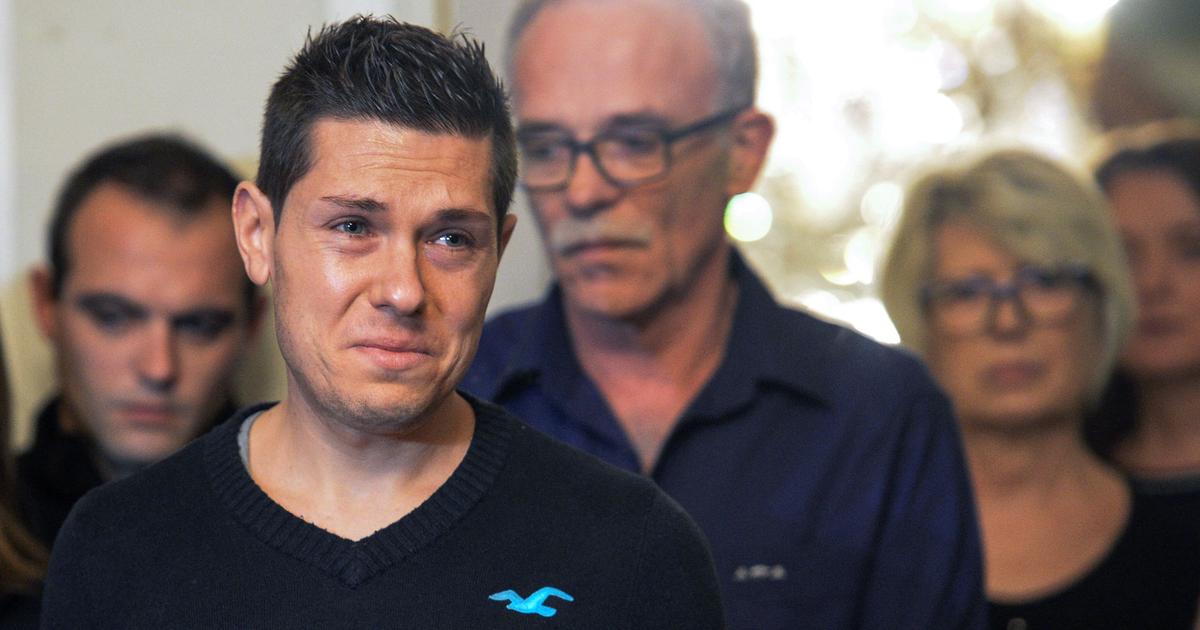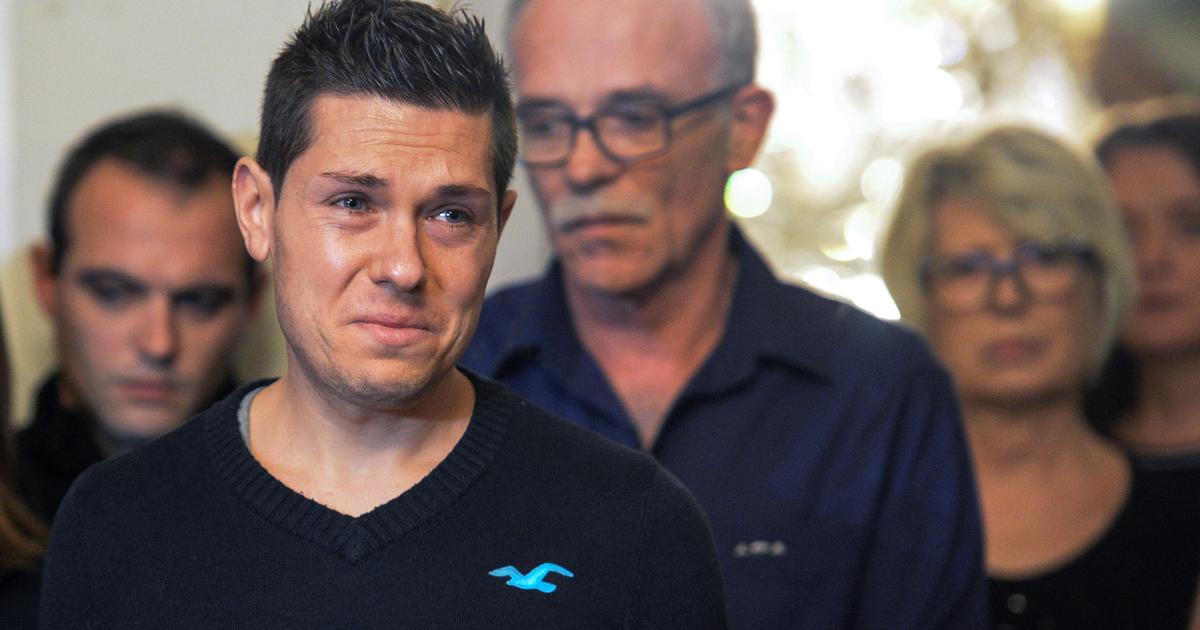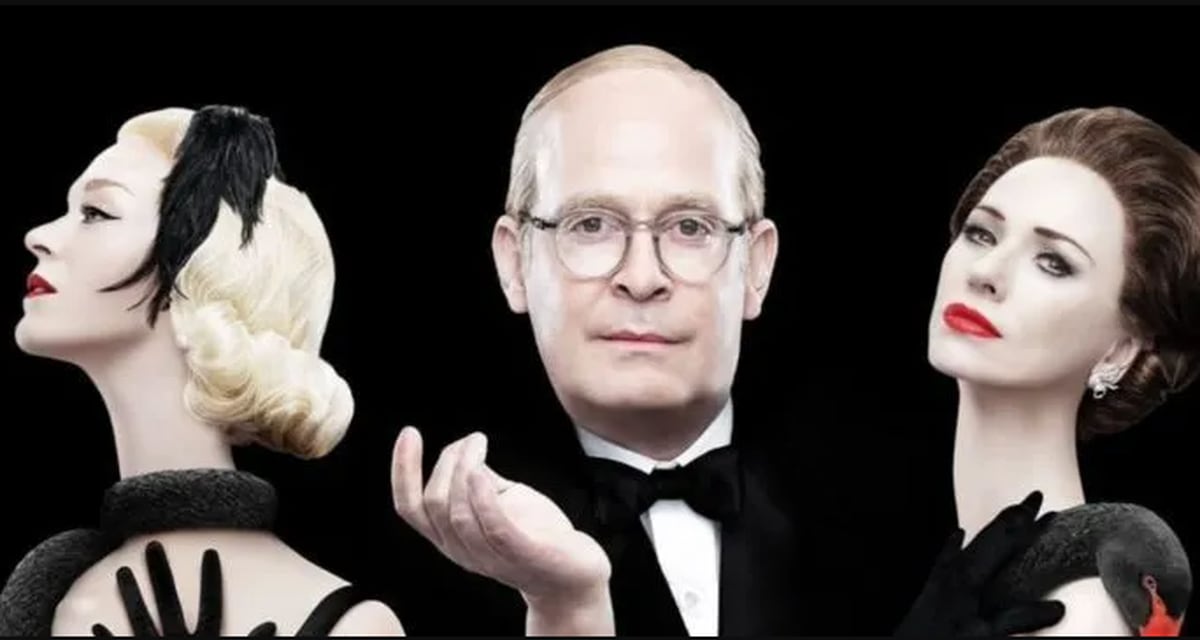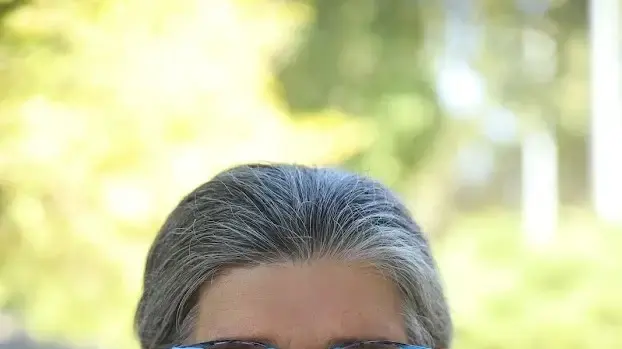More than 200 gay singers and a gospel choir drive through the evangelical southern states after the election of Donald Trump. What sounds like material for a comedy or an ethnographic case study is something else: "Gay Chorus Deep South" by David Charles Rodrigues, which won the audience award at the Tribeca Film Festival, is a warm, touching, only occasionally touching documentary about the power, to face people with whom you seem to have no points of contact.
Rodrigues accompanies the San Francisco Gay Men's Chorus and the Oakland Interfaith Gospel Chorus on their tour of the southern states with the most discriminatory LGBTQ laws in the country. For the members, however, the two weeks are not just a political sign. For some, like director Tim Seelig, it is also a journey into their own past.
The film, so far without German distribution, will be shown on MTV next spring.
The Trailer for "Gay Chorus Deep South"
SPIEGEL: Mr. Seelig, you are leading the Gay Men's Chorus in San Francisco. Until the early 30s you were musical director of a Baptist church with 20,000 members.
Seelig: And on a Wednesday evening I lost my job, my children, my house. When my wife found out that I was gay, she outed me in front of the church, in front of our friends and relatives. Up to this point, my entire life was linked to this community, I come from a deeply religious family. After that, I haven't entered a Baptist church for 30 years.
SPIEGEL: Then you performed there with around 200 gay singers. The director David Charles Rodrigues accompanied the choir on a tour of the southern states for his film "Gay Chorus Deep South". How did that happen?
Seelig: Actually, we wanted to be the first gay choir to go to China for our 40th anniversary. Probably the worst election party ever changed everything.
SPIEGEL: What happened?
Seelig: We had rented a bar to celebrate Hillary's victory. Great atmosphere, everything was full of balloons. At some point it was clear: Trump wins. Everyone left the bar in silence. The next day, one of the choir's board of directors suggested: Why don't we tour all the Red States, the states in which Trump had won?
SPIEGEL: You have reduced yourself to 25 appearances in Alabama, Tennessee, Mississippi, North and South Carolina. Why?
Seelig: Because as an NGO we are not allowed to pursue a political line and couldn't tour for six months. We chose the states with the most discriminatory laws for LGBTQ people. And the Oakland Interfaith Gospel Choir accompanied us. What helped to get it into the churches.
SPIEGEL: The question of travel is universal: how do you deal with people who do not share the same worldview or who do not accept you. Where do you draw the line?
Seelig: I would not have gone to an alt-right church. I would never deny myself again. When churches said: "We don't want to celebrate you, but we can tolerate you", it was clear: Then not. That happened too.
SPIEGEL: But you were also welcomed.
Seelig: I was often surprised. We were with the Methodists, with the Presbyterians, the rows of churches were full. We also had to question our own prejudices and open ourselves emotionally.
SPIEGEL: For example?
Seelig: Sometimes it's easier to declare people as enemies because they hurt you. Many of our members don't go home for Christmas. They can't stand their Trump-voting families who keep watching Fox News. But if you come through the door and smell the whole house of your mother's pumpkin pie, it's okay to let it touch you. We can celebrate the nostalgia of the meeting and embrace each other.
SPIEGEL: What were your expectations when you set off?
Seelig: I thought that more would be protested. Many choir members were really scared. They thought that everyone in the southern states was armed and that they would be shot. I'm from Texas, I knew the odds were slim. Extreme rights are on the margins of society. The Ku Klux Klan may come to Gay Pride Rallies because they want attention. Not to a church concert.
SPIEGEL: Nevertheless, you can see how police officers guard the venues. What security measures did you take?
Happy: Two weeks before the tour started, neo-Nazis ran a torchlight march through Charlottesville, a white supremacist drove into the crowd. After that, we doubled the security budget to $ 60,000. We were always escorted on the way. The director could have easily cut a film of fear with the material.
SPIEGEL: Were you afraid?
Seelig: No, but also because we spoke to the police. In Birmingham, Alabama, officials said the threat was minor. It was a funny situation: The room full of police officers, an FBI employee and a bunch of gay choir members who whispered: "Gosh, how hot are you all?"
SPIEGEL: The Gay Men's Chorus was founded in 1978 in the Castro district. Shortly afterwards, Harvey Milk, the first openly gay politician in the United States, was shot.
Seelig: That was on the day of the fourth rehearsal. The men decided to sing "Thou Lord, Our Refuge" on the stairs of the town hall, their first appearance. The murder has sobered and politicized many. They toured the country three years later. The idea was that we would spread the word of the gays and rub it under your nose. In fact, new LGBTQ choirs were founded everywhere. The "San Francisco Chronicle" reported on the tour in 1981. On the side was also a message about "pneumonia in gay men".
SPIEGEL: The beginning of the AIDS epidemic.
Seelig: That became the history of the choir. Only a handful of members from this period are still alive. Most have died.
SPIEGEL: For a long time, it appeared that discrimination would decrease and the legal situation would become more LGBTQ-friendly. How long have you felt a step backwards?
Seelig: When Trump started "Mexican rapists" when he announced his candidacy. It was clear: Everyone who is "different" - foreigners, migrants, trans people - will soon suffer. Interestingly, Trump didn't attack gays for a long time. I think it's because of his three wives.
SPIEGEL: To what extent?
Soulful: Melania, Ivanka and Marla are probably surrounded by gay hairdressers and designers. In Mar-a-Lago half of the team is probably gay. Trump installs all of the Jesus freaks in the lower levels, at the courts and at the Centers for Disease Control (CDC). It is about AIDS research, and the courts also about freedom of religion in Mississippi. This includes: You can theoretically be terminated or you cannot get an apartment because you are queer.
SPIEGEL: What did you learn on the trip?
Seelig: Our picture of "Oh dear, the poor queers in the south!" was overwritten by: "Wow! Great how you fight!" Malaysia Walker, for example, is the only person in all of Mississippi who works for the rights of trans people. She said: "I could work very easily in New York. I wouldn't be noticed as a trans woman. But my people are here, I fight for them and I stay." We realized again that our activism is simple. We live in San Francisco.
SPIEGEL: Where you moved to in 2011. Previously, you directed the gay choir in Dallas for 20 years.
Seelig: That was my first job after I became unemployed. I thought I would stay a year. Now I teach various LGBTQ choirs across the country. One thing that is the same everywhere: the drama. Who sings the solo, who is the most beautiful? When every sample is felt, weep. By the way, that's different with lesbian choirs. For twelve years I had the direct comparison: rehearsal with 100 lesbians on Monday evening, with 225 gays on Tuesday evening.
SPIEGEL: What was the difference?
Seelig: For the women in Dallas, it was not about sexual orientation, but about female power. The men's choir is all about being gay, they live out everything they haven't been allowed to do for years: don't cry, be neither shrill nor extravagant.
SPIEGEL: Younger members may not share the experience, do they?
Seelig: That's right. Some 19-year-olds had come out as teenagers and immediately described themselves as genderfluid. For them, the choir is just another piece of the mosaic in their large, dazzling, gay life. In the choir they are confronted with older people who have had to fight for their lives. You won't find that in gay volleyball or in the gay pub. For me, mission and music are like twins. What does a super-activist choir do that doesn't sing well? Nobody wants to hear it. And on the other hand: who is interested in a gay choir without a mission? Exactly: none. That's why we bring the two together.
This article was created as part of the journalist exchange program "Closeup" of the Goethe-Institut and the German Year USA under the motto "Wonderful Together". More information can be found here.







/cloudfront-eu-central-1.images.arcpublishing.com/prisa/PZFRUMDJ6JBZXN7VSPI6FPM6DU.jpg)







/cloudfront-eu-central-1.images.arcpublishing.com/prisa/IGZ7GOCXZ5GUPAQ2HWGK6Z76BU.jpg)